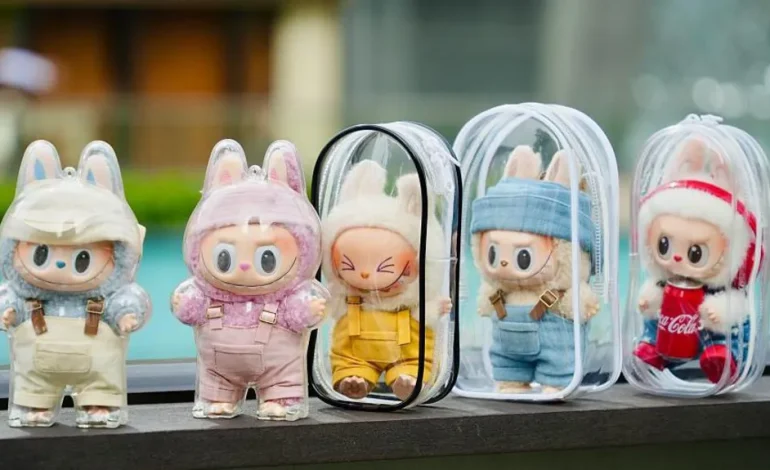Whether considered endearing, odd, or just plain puzzling, Labubu dolls have become a global sensation, BBC reports.
Originally created by Hong Kong-born artist Kasing Lung and produced by Chinese toymaker Pop Mart, these elf-like, furry figurines—known for their wide grins, pointy ears, and expressive eyes—have captivated collectors from Shanghai to London.
Labubu, a central character in Lung’s The Monsters series, was designed as a mischievous creature with good intentions that often go awry. Though the name “Labubu” holds no specific meaning, the character’s charm has propelled it—and its extended universe of figures—into international fame, aided by widespread social media attention and celebrity endorsements from the likes of Rihanna, Dua Lipa, Kim Kardashian, and Lisa of Blackpink.
The toy’s rising popularity has significantly boosted Pop Mart’s bottom line, nearly tripling profits in the past year. Originally launched in 2010 as a Beijing-based variety store, Pop Mart pivoted to blind-box toys in 2016, eventually partnering with Lung in 2019 to introduce Labubu to a wider audience. The company now operates over 2,000 vending machines and retail locations in more than 30 countries. Overseas sales accounted for nearly 40% of revenue in 2024, with some locations temporarily pausing sales due to overwhelming demand.
Much of the excitement around Labubu comes from its unique blind-box format, where customers don’t know which variation of the doll they’ll receive until unboxing. This element of surprise has fueled collector communities and made rare “chaser” editions particularly coveted. Some enthusiasts, like collector Desmond Tan in Singapore, have developed techniques for identifying limited editions by gently shaking the boxes.
Despite being relatively affordable—most dolls cost between $18 and $70—second-hand prices have surged on resale markets due to limited availability. Even so, fans cite emotional attachment and collectability as primary drivers. “The more popular it gets, the more I want it,” said Fiona Zhang, a fan living in Canada.
Labubu’s appeal has also helped elevate China’s cultural exports. Chinese state media and analysts have described the character’s global success as a positive reflection of modern Chinese creativity. According to experts, Labubu offers a playful contrast to perfectionism and a sense of controlled chaos that resonates with post-pandemic audiences, particularly among millennials and Gen Z.
The character’s rise has not been without challenges. Demand has led to long queues, occasional scuffles in stores, and a growing black market of counterfeit dolls—prompting recent seizures by Chinese customs of more than 70,000 fake items.
Still, the craze shows no signs of slowing. Social media is filled with unboxing videos, fan art, and display collections. One viral clip showed U.S. airport security staff crowding around a Labubu blind box, eager to see which version was inside.










The latest news in your social feeds
Subscribe to our social media platforms to stay tuned